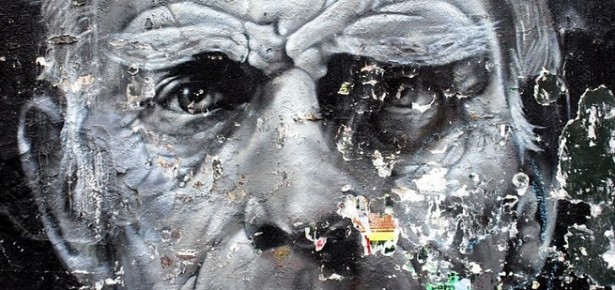
This book was a long time in the making – the research and writing took about ten years – and the ideas that gave rise to it go back even further, to the first time I read Beckett (nothing glamorous: this was a chance encounter involving a rainy holiday and a box of books left over at a friend’s house, when I was a teenager). Nevertheless, from that first reading (the texts I read were the absurdist plays of the 1950s) I recall having a very strong sense that Beckett’s writing had a very literal political dimension; I didn’t know anything about the author, but became persuaded that the work had something to do with colonial empires in general and the Algerian War of Independence in particular. The sense I gained of the work from that first reading has stayed with me ever since, not least because it never seemed to square with the widespread view that Beckett had no interest in political ideologies and did not share the political enthusiasms that swept away everyone else from his generation. When I started work on this book I began with the Algerian war – this is now the final chapter – and the rest of the book followed from there, in reverse.
The research process wasn’t orderly, and neither was the writing process: whole chapters came and went, with some sections returning in other forms. The theoretical arguments I had started with gradually dwindled and biographical and historical details took on more importance. The work led me to scrutinise historical facts and sources that were often distressing, and making the jump back to Beckett, to the political worlds in which he was immersed, and to his reimagining of political history often required more research and more time than I had anticipated. There were some magical moments in the midst of it all, particularly when I realised that Beckett’s political activities were much more extensive and sustained than previously acknowledged. Discovering the many petitions that he signed over the course of his life was immensely exciting. That part involved much detective work, dusty volumes tucked in the dark corners of libraries and archives, some luck and some intuitions that I couldn’t necessarily explain. I’ll spare you the anecdotes; let’s just say that by the time I reached the end of my petition-hunting, I felt I might have a bright future as a water diviner…
Thinking about the political questions raised by Beckett’s writing can – and should, I think – be uncomfortable; to put it simply, his work asks us whether or not we are willing to see what is in front of us.
Ultimately, what I wanted to do in this book was to reflect on Beckett’s unusual capacity to invoke – without direct representation – difficult moments in modern political history; moments that are forgotten and passed under silence, and only become intelligible when one really thinks about the realities of war and their impact on consciousness and memory. Many authors have grappled with the political spectres that are everywhere around us, and Beckett did this in a way that continues to be fascinating and provocative. His unusual life gave him precious insights into the ways in which politics affect the lives of individuals and nations: he had sustained experiences of war and conflict which made accessible to him a direct political knowledge that few of his contemporaries shared. Beckett is not an obvious candidate for political writing as we would commonly understand it: his writing puts to the test many of the assumptions we commonly make about types of political literature. Yet some fascinating insights into the relation between politics and literature can be reaped from such a work and life marked by exile, translation and a sense of not belonging. This is one of the things that this book tries to show.
Thinking about the political questions raised by Beckett’s writing can – and should, I think – be uncomfortable; to put it simply, his work asks us whether or not we are willing to see what is in front of us. This is a fundamental political question that continues to resonate today, and this is one of the many reasons why his work has retained such appeal and influence in the twenty-first century.
Latest Comments
Have your say!